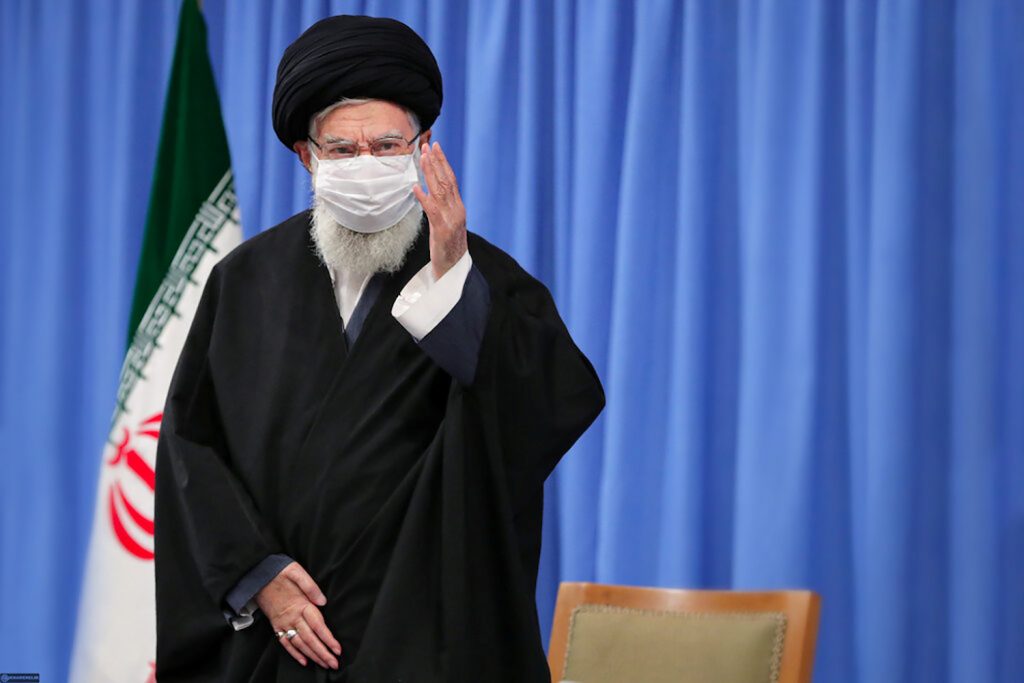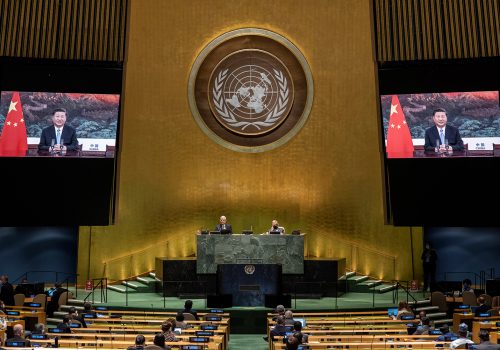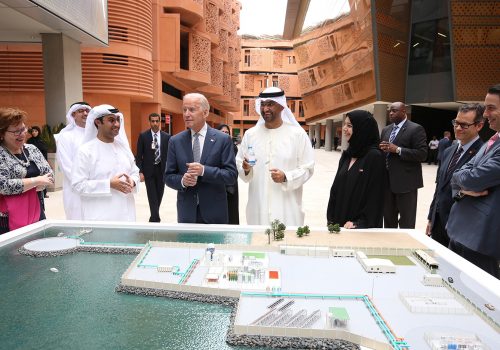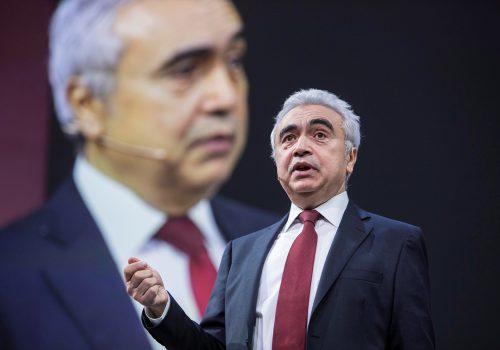This piece was updated on January 21.
Syria’s decade-long civil war. A humanitarian crisis in Yemen. Ongoing hostilities between Israel and the Palestinians. The rising death toll from COVID-19 throughout the Middle East.
Each crisis represents a major US foreign-policy challenge, but all will likely receive less attention from the new American administration than another pressing issue in the region: Iran’s recent nuclear advances. That was the consensus of five Arab, Israeli, and American experts gathered for a virtual discussion on January 20 that coincided with Joe Biden’s inauguration as the 46th president of the United States.
The panel—moderated by Kirsten Fontenrose, the director of the Atlantic Council’s Scowcroft Middle East Security Initiative—was part of the Council’s 2021 Global Energy Forum.
“Iran has been increasing its imports of enriched uranium. This demands attention immediately, and Biden will make that a critical priority of his,” said Carlos Pascual, a senior vice president for global energy at IHS Markit and a former US ambassador to Mexico and Ukraine.
“Iran is trying to kick the United States from the region and bring China and Russia to fill that void,” warned Ebtesam Al-Ketbi, the president of the Emirates Policy Center in Abu Dhabi. “This will be the greatest threat [if] the US is going to lower its footprint in the region.”
Watch the full event
The backdrop: America’s future role in the Middle East
Looming over these issues is the widespread perception that the United States has given up on the region, warned William Wechsler, the director of the Atlantic Council’s Rafik Hariri Center for the Middle East and Middle East Programs.
“The most important thing for the Biden administration to do out of the gate is come to an internal agreement about what the remaining US interests are in the region, what our strategic ends are. Too many US administrations have started off with actions but without internal cohesion,” said Wechsler, a former US deputy assistant secretary of defense. “Biden, once in office, will have to decide whether or not he’s going to arrest those perceptions or allow them to continue.”
The view from Israel
Israel sees Iran as an existential threat that must be dealt with immediately. “The Biden administration will have a lot on its plate—COVID-19, [the] economy, racial tensions, China, Russia, North Korea. The Middle East will not be in the top ten priorities,” observed Amos Yadlin, the executive director of Tel Aviv University’s Institute for National Security Studies. “However, Iran is forcing a crisis [by] breaching the agreement and going forward with nuclear violations.”
The Joint Comprehensive Plan of Action (JCPOA) to which Yadlin referred was established in 2015. It placed significant restrictions on Iran’s nuclear program in exchange for the lifting of US and European sanctions against Tehran. Trump, with the support of most Republican lawmakers, unilaterally withdrew from the controversial deal in 2018, though Biden has pledged to return to the agreement if Iran resumes compliance with the pact’s provisions.
“The Democrats are committed to the JCPOA. It’s also an election promise” of Biden’s, said Yadlin, who spent over forty years in the Israel Defense Forces and served as the IDF’s chief of intelligence from 2006 to 2010. “On the other hand, if you going back to the problematic agreement that even Democrats understand has a lot of loopholes, you are giving up [US] leverage vis-à-vis Iran.”
‘Joe knows Bibi, and Bibi knows Joe’
When it comes to Biden’s relationship with Israeli Prime Minister Benyamin Netanyahu, who’s held power since 2009, “Joe knows Bibi, and Bibi knows Joe. We can skip that part,” quipped Wechsler, referring to Netanyahu by his Hebrew nickname. “There will be a focus on the Israeli-Palestinian challenge, but I don’t think that focus will take the same form we’ve seen previously. The last four presidents in very different ways have sought holistic, comprehensive solutions, and have all failed. A fifth attempt is probably not likely to have a different outcome.”
One of Trump’s notable successes in foreign policy was the Abraham Accords, under which Israel has established diplomatic relations with four Arab nations—the United Arab Emirates, Bahrain, Sudan, and Morocco—independent of any progress on the Palestinian issue.
Whether additional countries, led by Saudi Arabia, will join the accords remains unclear. Even so, Wechsler expects Biden to show far more interest than Trump did in alleviating Palestinian suffering “and ensuring that neither side takes any steps that will preclude the potential for a two-state solution. Although the potential for such a holistic solution right now might not be very high, it will be again in the future.”
What to expect from renewed Iran oil exports
If a nuclear deal were renegotiated, the Biden administration might allow Iran to resume oil sales. As for how such a development would affect regional geopolitics, Yadlin said he didn’t think it would “be a game-changer in the energy market.”
“We don’t know exactly how much oil Iran is exporting as we speak,” he noted. “The number on the low side is 700,000 barrels a day,” he calculated, but it could be more than a million barrels given suspicion that Iran is sending oil to China that goes unrecorded–and it could go up by another million if the US removes limits on exports.*
However, Brenda Shaffer, a nonresident senior fellow at the Atlantic Council’s Global Energy Center, said that she expected Iran to release more oil to the market even before any negotiations on a new nuclear deal, given Tehran’s “sense that the [Biden] administration isn’t going to clamp down hard on violations of the current sanctions.”
Added Pascual: “We don’t know how much oil would return to the market. But in the context of a global market of ninety-three million barrels a day, it’s relatively small. Once vaccines start to become available, demand will recover.” IHS Markit projects that demand could reach ninety-nine million barrels a day by the end of 2021.
Larry Luxner is a Tel Aviv-based freelance journalist and photographer who covers the Middle East, Eurasia, Africa, and Latin America. Follow him on Twitter @LLuxner.
Correction: This article originally attributed this quote by Amos Yadlin to another panelist. We regret the error.
Further reading
Image: Iran's Supreme Leader Ayatollah Ali Khamenei gestures during a meeting with organizers of events to mark the first anniversary of the killing of Iran's top commander Qassem Soleimani, in Tehran, Iran December 16, 2020. Official Khamenei Website/Handout via REUTERS



